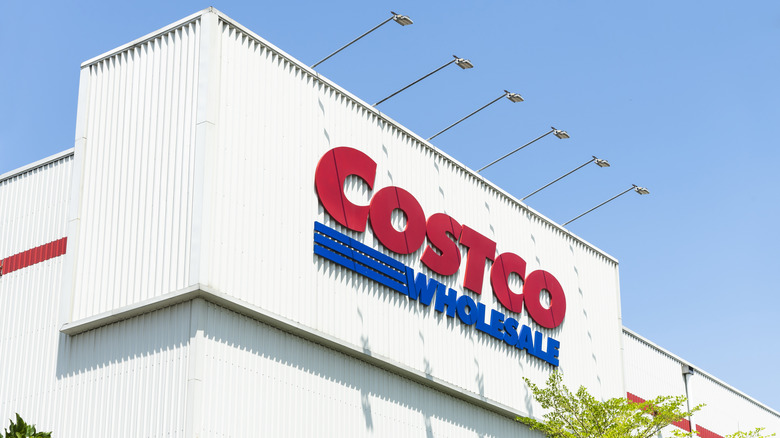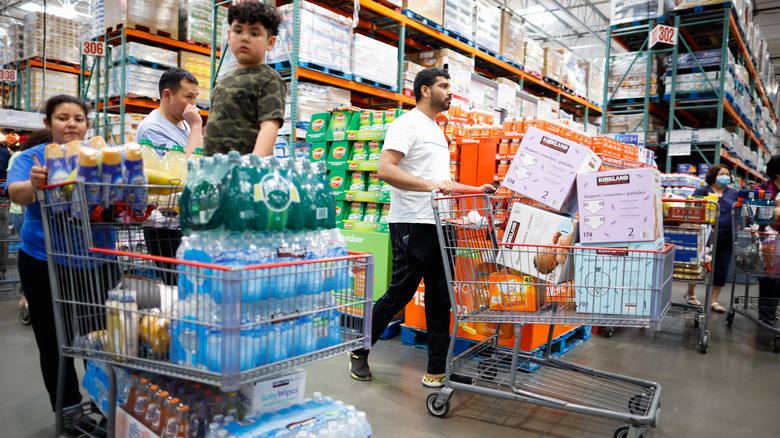The Biggest Reason More Americans Aren't Costco Members
Talk to any suburban homeowner and they will almost undoubtedly proselytize to you about the grocery shopping mecca that is Costco. Beloved for its bargain prices for bulk buys, discounted gas, plus its insanely cheap food court, the praise for Costco is totally understandable. But there are a lot of folks who don't shop at Costco. Costco is a wholesale membership-exclusive store, which means customers pay an annual fee in order to shop there. Based on a survey by Go Banking Rates, 42% of Americans aren't Costco members. So why is about half of the country holding out on becoming a Costco fanatic?
The answer isn't so much about a prohibitive membership cost but mostly has to do with access to locations. Costco has only 590 locations in the U.S. and Puerto Rico. By comparison, Walmart has 4,630 stores across the United States. That means it's much rarer to come across a Costco. So if you have to make a pilgrimage before each shop, the discounted gas and groceries won't really pay off the same way. Plus, nobody wants to make grocery shopping into an all-day affair, especially when there are plenty of other grocery stores nearby.
Costco doesn't make sense for every stage of life
Another interesting finding in the survey was that membership rates varied drastically by age. Only 28% of respondents who were members were aged 18-24, while 55% were 45-54, and 60% were over 65. What's the reason for the age discrepancy? It's probably not because young people hate big savings. It's more likely that age correlates with stages of life like how large your family is and how big your house is.
Costco bulk groceries make a ton of sense for large families because, with more people in the house, you're likely going to go through groceries much faster than a single-person household or couple. Savings are more apparent when you're cooking, eating, and providing toilet paper for more than just one or two people. Since everything at Costco is bigger, you need room to put those massive grocery hauls. If you don't have anywhere to put their signature bulk groceries, then any potential savings are pretty overshadowed by inconvenience. Millennials and younger people are also more likely to prefer living in an apartment. Related to the location factor, city dwellers and apartment owners usually have limited storage space, and can only buy groceries as they're needed.

